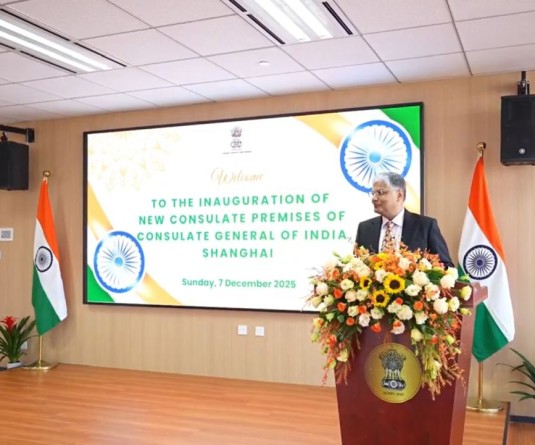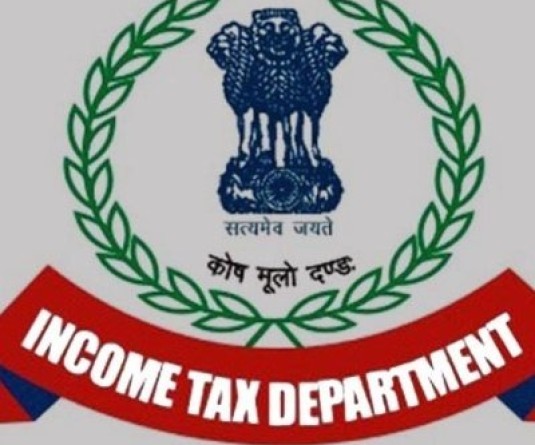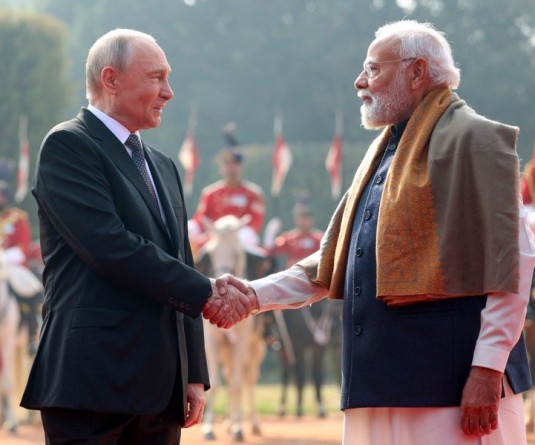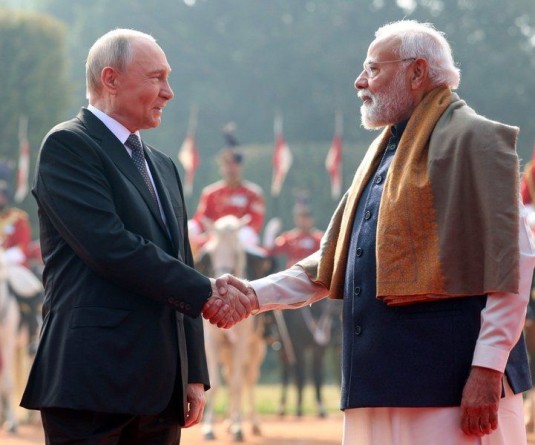
London, March 18 (PTI): Women’s voices should be heard in the ongoing global climate change debate as they have played a stellar role in raising environmental consciousness, Congress President Sonia Gandhi has demanded and asked the Commonwealth to take a fresh initiative on this. Branding climate change as the most difficult challenge facing the humankind, Ms. Gandhi said the climate debate had so far been gender-blind, ignoring the role played by women in raising environmental consciousness.
Delivering the Commonwealth lecture 2011 on ‘Women as Agents of Change’ at the Royal Commonwealth Society here last night, she reminded that investment in women had the “highest- return”, and said the society owed it to the women to give them “greater security” in rapid urbanisation. Ms. Gandhi, also the chairperson of ruling UPA on a five-day “private visit” here, was given a standing ovation as she walked to the podium to deliver the lecture at a packed hall which comprised High Commissioners, Ambassadors and British lawmakers. Ms. Gandhi said that she sometimes wondered whether women’s greater empathy with nature and concern for their children’s future might not help the world to find a new, more sustainable, less consumerist path of development.
“In 1989, the Commonwealth became the first major international organisation to publish a landmark scientific study on the devastating effects of climate change. Commonwealth Heads of Government also agreed on a Climate Change Action Plan in 2007, where, among other things, they called upon the support of women to ensure effective action. “How can such support be extended if women’s voices and concerns hardly figure in the global climate negotiations, or in national and local climate management plans?” she asked. “Perhaps it is time for a fresh initiative to help the world bridge this gap. Such an initiative could suggest ways to bring women’s participation and perspectives more squarely into the global negotiations. We need climate justice not only between countries, but also between genders,” she said.
She said enhancing the role of women in protecting the environment is necessary. “But what about protecting women themselves? Economic growth is leading to mass migration to cities. Disturbingly, this is being accompanied by growing violence against women. If urbanisation is the world’s future, we must design urban environments and services in ways that will give women greater security, and educate and involve citizens in this cause. A Commonwealth initiative bringing together our great cities to collaborate on this issue would be timely,” she said. In her lecture, Ms. Gandhi set out five areas in which women have emerged as “agents of change” in India.
They included Self-Help Groups pooling savings and securing loans for local projects; elected roles for women in rural self-government; social activism through the establishment of the language of human rights for women; the establishment of local enterprise collectives, some of which have been replicated elsewhere in Asia; and the setting up of village information centres and IT kiosks. She said that women’s enterprise also played a role in regions ravaged by violence and conflict, and within India, these groups had taken the lead in mediating, peace-building and reconciliation in areas of strife. “Today, women in India are becoming agents of change through their own initiative, their energy and enterprise.
Through individual and collective action, they are transforming their own situations and indeed transforming the broader social context itself. “India is at the cusp of a ‘demographic dividend’, due to its young and increasingly educated and skilled population by a ‘gender dividend’. It will, I believe, yield enormous economic gain and lead to profound social transformation,” Ms. Gandhi said. She highlighted the “powerful” role of technology in reducing gender inequalities through the creation of IT sector jobs allowing women to live independently, and the proliferation of knowledge-based enterprises run by women in rural areas, allowing them to access government services. The UPA chairperson said it could be argued that the progressive victories of the women’s movement, their achievement of the right to vote and other rights, were the 20th century’s seminal contribution to human advancement.
“It has been a long journey. I fervently hope that the 21st century will take this to its logical conclusion. May this be, not the century of any particular country, but the century when women finally come into their own, the century when representative democracy is re-imagined to give women their due share, the century when the vocabulary of politics and culture is re-engineered fully to include that other half of mankind.” The Commonwealth Lecture, now in its 14th year, aims to stimulate understanding and debate on the Commonwealth and its role in world affairs. Previous Lecturers have included the then UN Secretary General Kofi Annan, Mary Robinson, Professor Muhammed Yunus and Terry Waite.
Delivering the Commonwealth lecture 2011 on ‘Women as Agents of Change’ at the Royal Commonwealth Society here last night, she reminded that investment in women had the “highest- return”, and said the society owed it to the women to give them “greater security” in rapid urbanisation. Ms. Gandhi, also the chairperson of ruling UPA on a five-day “private visit” here, was given a standing ovation as she walked to the podium to deliver the lecture at a packed hall which comprised High Commissioners, Ambassadors and British lawmakers. Ms. Gandhi said that she sometimes wondered whether women’s greater empathy with nature and concern for their children’s future might not help the world to find a new, more sustainable, less consumerist path of development.
“In 1989, the Commonwealth became the first major international organisation to publish a landmark scientific study on the devastating effects of climate change. Commonwealth Heads of Government also agreed on a Climate Change Action Plan in 2007, where, among other things, they called upon the support of women to ensure effective action. “How can such support be extended if women’s voices and concerns hardly figure in the global climate negotiations, or in national and local climate management plans?” she asked. “Perhaps it is time for a fresh initiative to help the world bridge this gap. Such an initiative could suggest ways to bring women’s participation and perspectives more squarely into the global negotiations. We need climate justice not only between countries, but also between genders,” she said.
She said enhancing the role of women in protecting the environment is necessary. “But what about protecting women themselves? Economic growth is leading to mass migration to cities. Disturbingly, this is being accompanied by growing violence against women. If urbanisation is the world’s future, we must design urban environments and services in ways that will give women greater security, and educate and involve citizens in this cause. A Commonwealth initiative bringing together our great cities to collaborate on this issue would be timely,” she said. In her lecture, Ms. Gandhi set out five areas in which women have emerged as “agents of change” in India.
They included Self-Help Groups pooling savings and securing loans for local projects; elected roles for women in rural self-government; social activism through the establishment of the language of human rights for women; the establishment of local enterprise collectives, some of which have been replicated elsewhere in Asia; and the setting up of village information centres and IT kiosks. She said that women’s enterprise also played a role in regions ravaged by violence and conflict, and within India, these groups had taken the lead in mediating, peace-building and reconciliation in areas of strife. “Today, women in India are becoming agents of change through their own initiative, their energy and enterprise.
Through individual and collective action, they are transforming their own situations and indeed transforming the broader social context itself. “India is at the cusp of a ‘demographic dividend’, due to its young and increasingly educated and skilled population by a ‘gender dividend’. It will, I believe, yield enormous economic gain and lead to profound social transformation,” Ms. Gandhi said. She highlighted the “powerful” role of technology in reducing gender inequalities through the creation of IT sector jobs allowing women to live independently, and the proliferation of knowledge-based enterprises run by women in rural areas, allowing them to access government services. The UPA chairperson said it could be argued that the progressive victories of the women’s movement, their achievement of the right to vote and other rights, were the 20th century’s seminal contribution to human advancement.
“It has been a long journey. I fervently hope that the 21st century will take this to its logical conclusion. May this be, not the century of any particular country, but the century when women finally come into their own, the century when representative democracy is re-imagined to give women their due share, the century when the vocabulary of politics and culture is re-engineered fully to include that other half of mankind.” The Commonwealth Lecture, now in its 14th year, aims to stimulate understanding and debate on the Commonwealth and its role in world affairs. Previous Lecturers have included the then UN Secretary General Kofi Annan, Mary Robinson, Professor Muhammed Yunus and Terry Waite.






